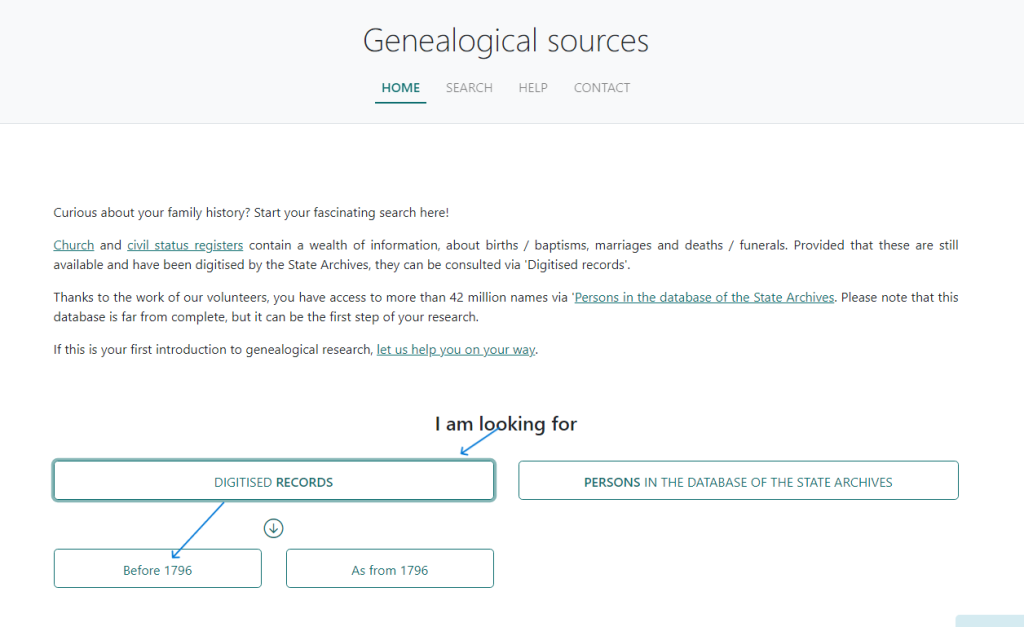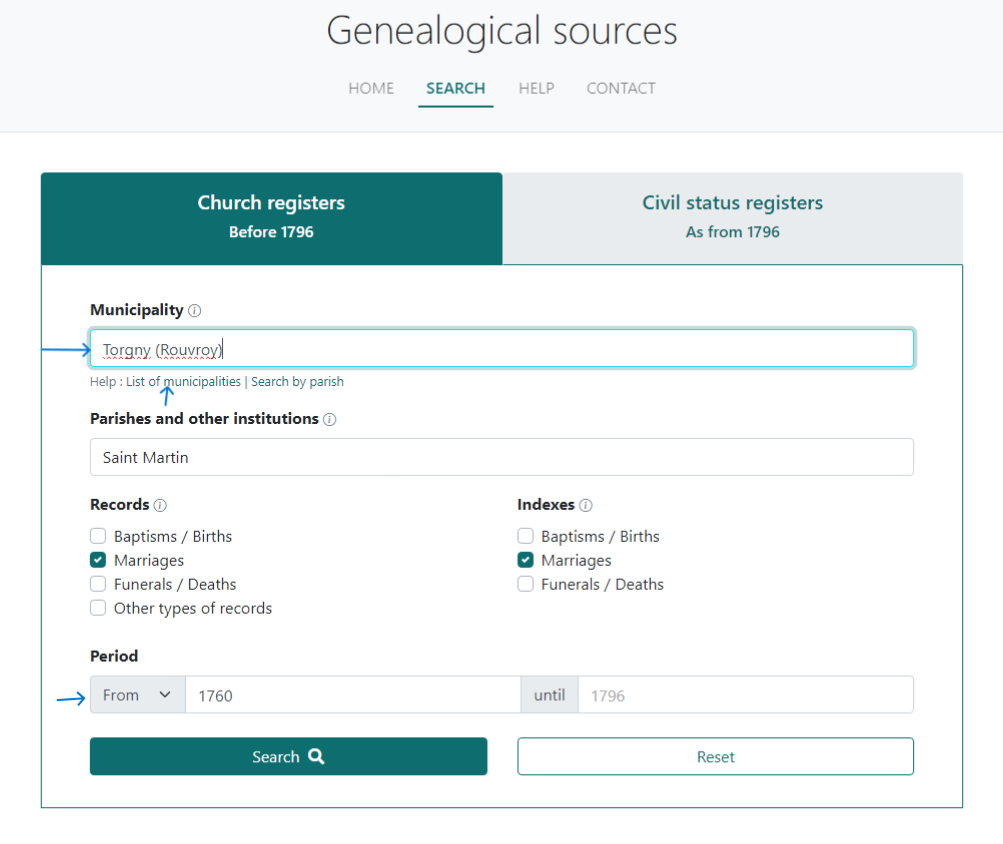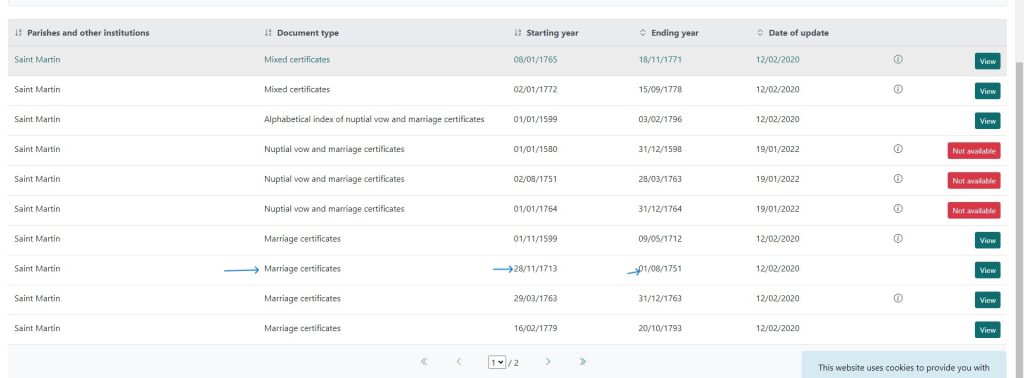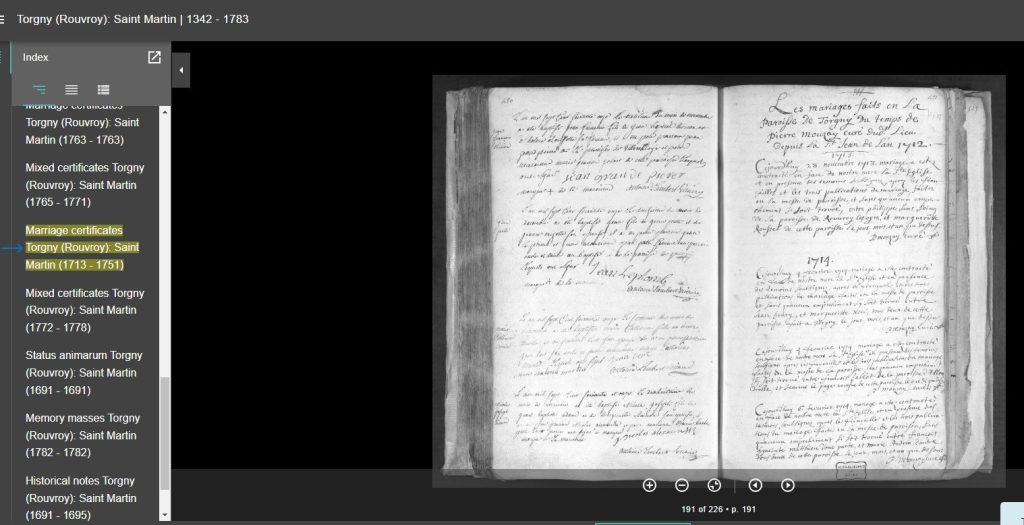Rebirth of the Genealogy Site at the State Archives of Belgium

Back in the day, the old way of finding & searching for Genealogical digitalized records through each town of the Belgium Archives was exhausting. Nestled into the long paragraphs of a page at the website, were the links to the church and civil records. Choose one, then you have provinces to choose from. Then, you’re met with a long, long list of towns to scroll and scroll down (and down, and down). You finally find the town you want, so click, click. And horrors, you would have seen, multiple year batches divided into sections. but the type of records, were not categized into sectioned.
Just looking at the pages made me feel fidgety.
Now, the research begins, but half the day is gone. Well not quite. Do you see how confusing, cumbersome, exhausting, and time consuming all those steps you have to take? Not only that, citing sources was infuriating!
Now, the exciting part is that nightmare is over. They have introduced a beautiful streamline system. No longer, choosing the right Province, no longer scrolling down an endless list of towns, no longer jumping from one group of years to the next, no longer searching page after page for the right kind of digitalized record.
The only ‘hard’ part now is clicking the civil or the parish links, and entering a town in which to search through. The archivists have grouped the types or records; Births, Baptism, Marriage and death, separately for each town, and then by years. So what seemed to take forever by the ‘old way’ of researching Belgium archives,, can now be easily searched through with their new search system.
Navigational Tutorial:
First you need to register at State Archives of Belgium
Let’s start at the beginning; the ‘Genealogy Sources‘ genealogical webpage of the State Archives of Belgium :

I’m going to take you though the easy process of searching for the digitalized records.
Some background information before we begin: Before the French Revolution, the only and recognized source for vital documents was the local Catholic Church’s town parish at the time. Instead of civil records of birth, marriage or death of a person , the Catholic Church performed baptisms, marriages and carried out the duties of burials know as sepultures. The town’s parish priests themselves, or scribes of the priest or other church officials carefully recorded those ‘l’actes’. They were then, stored in the town’s church and/or copies were made to the diocese of the region to be accessed when needed.

I checked marriage records and indexes for our tour. Those are exciting as they could contain a lot of genealogical information to harvest.
You can see what years and documents were recorded and what are now available. These documents are separated by type and by years. It’s the same with the baptism and sepulture results too. As you might have noticed, there are ‘mixed certificates’ to go through, but it’s not the nightmare that it was before.

Below, the beauty of this is on the left side. So organized and easy. Not only can you find all the marriage certificates for the years selected, you can easily navigate to the next set of vital records. The bonus, there are also additional records and notes!!

I can’t even phantom the amount of time and work that went into this endeavor. What the archivists went through, to provide us with free records in an easy and organized formant, so we can search, without trauma, for our Belgian ancestors.
It’s a great time to be researching Belgian genealogy!